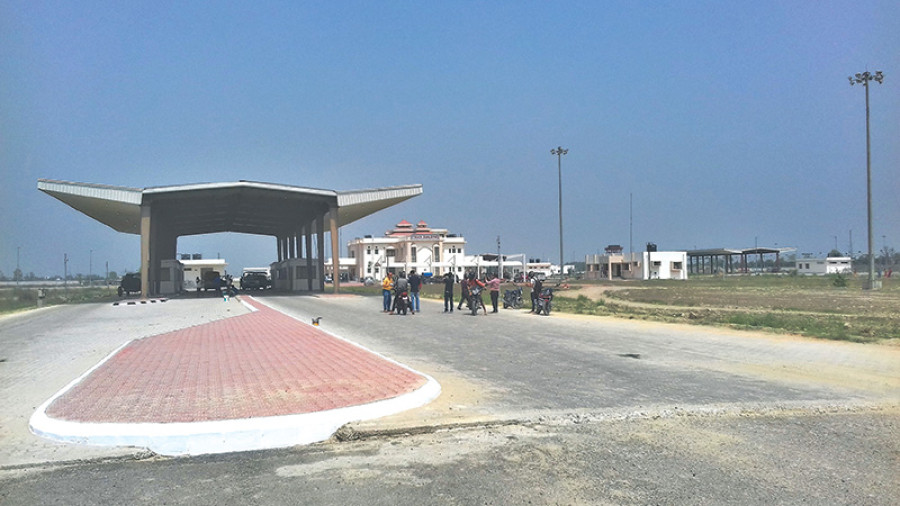Money
Govt mulls plan to boost traffic at ICP
The government is planning to make it mandatory for empty cargo vehicles returning to India via Birgunj to use the newly built integrated check post (ICP) in Birgunj. The Birgunj Customs Office made the decision in a bid to operate the country’s only ICP at a higher capacity.
Shanker Acharya
The government is planning to make it mandatory for empty cargo vehicles returning to India via Birgunj to use the newly built integrated check post (ICP) in Birgunj. The Birgunj Customs Office made the decision in a bid to operate the country’s only ICP at a higher capacity.
According to Santosh Yadav, information officer at the Birgunj Customs Office, the decision was made during a meeting between Birgunj Customs officials and their Indian counterpart on Wednesday.
“We will fix the date via bilateral negotiation and start sending vehicles through the ICP, said Yadav. “This move will help in boosting the operational load at ICP which formally opened earlier this month and is not yet operating at full capacity. It will also reduce traffic congestion which has become chronic at the Raxual-Birgunj customs point.”
Everyday, around 1,000 vehicles loaded with petroleum and other goods enter Nepal via Birgunj-Raxual point and similar number of vehicles leave Nepal via the same point. This has led to traffic congestion at the point and the ICP must come into operation at full capacity to solve the problem, according to Yadav. “We are in regular communication with Indian officials and are committed to operate the ICP at full capacity,” he said.
The major reason behind the underutilisation of the ICP is the delay in widening of a 700-metre long road that links it to the dry port in Sirsiya. Many traders are not keen on using this cross-border point because of narrow road linking the ICP. Due to the narrow road, some cargo vehicles have fallen off the road, causing drivers to avoid driving the perilous route.
The government is planning to build a six-lane road to connect the ICP and the dry port in Sirsiya.
The process of widening the 700-metre road formally began in the last week of March after the government started distributing compensation to landowners to acquire land. But works related to widening of the road has been moving ahead very slowly, which is preventing the ICP from operating at full capacity, according to officials of the Birgunj Customs Office.
Likewise, lack of custom agents based at the ICP on the Indian side and high charges for parking and load-unload facility have made the problem worse.
“We have raised such issues with our Indian counterparts,” said Yadav. “They have promised to address the issues.”
The ICP, built with the Indian government’s financial assistance, was inaugurated jointly by Prime Minister KP Sharma Oli and his Indian counterpart Narendra Modi by pressing a button in New Delhi on April 7.
But since its inauguration, the check post in Birgunj, from where over 60 percent of Nepal’s imports enter the country, has been mainly used to bring in petroleum products from India. Imports of petroleum products account for almost 95 percent of the goods worth around Rs730 million ferried into the country from the ICP since April 7, according to Santosh Yadav, information officer at the Birgunj Customs Office. Other goods such as blades, crude oil, pepper and other industrial raw materials were also imported from the ICP.




 21.31°C Kathmandu
21.31°C Kathmandu














